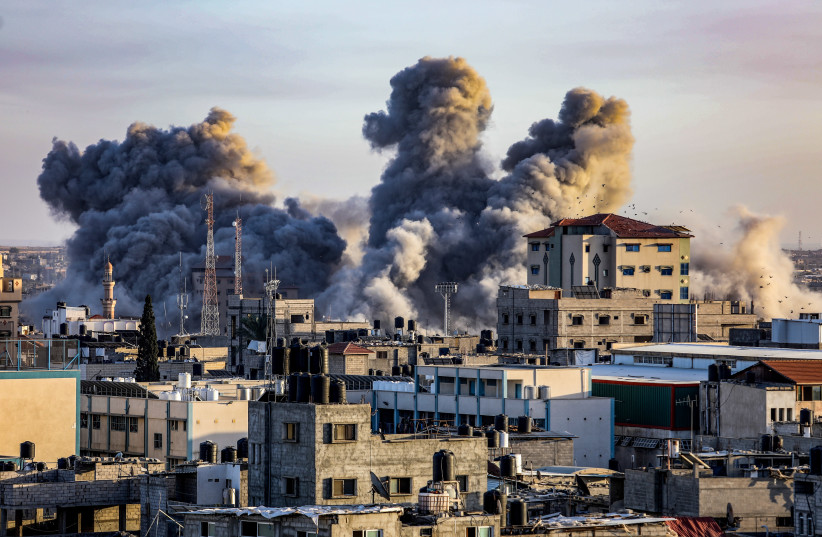Israel must have security responsibility for Gaza after the war, Prime Minister Benjamin Netanyahu told ABC on Monday, as he pushed back at the United States’ insistence that the IDF must withdraw after it ousts Hamas from that enclave.
“Israel will, for an indefinite period, have the overall security responsibly, because we have seen what happens when we do not have it,” Netanyahu said.
He pointed to Hamas’s killing of more than 1,400 people and its seizure of over 240 captives when it infiltrated the South on October 7 as the reason why Israeli security control of Gaza was important.
“When we do not have that security responsibility, what we have is the eruption of Hamas terror on a scale that we could not imagine,” he said.
Israel had militarily controlled Gaza from 1967 until its withdrawal in 2005.

Int'l community concerned about post-war plans
The US and the international community has been concerned about the day-after plan for Gaza, on the presumption that the IDF will succeed in destroying Hamas’s ability to control that enclave.
US Secretary of State Antony Blinken said last week it was his understanding that Israel did not want to control Gaza. He explained that he believed a revitalized Palestinian Authority should eventually be in charge of the territory, which Hamas has forcibly controlled since it ousted the PA in a bloody coup in 2007.
In Washington, State Department Deputy Spokesperson Vedant Patel clarified for reporters on Thursday that there was no scenario in which Israel could re-occupy Gaza as it did until 2005.
“Gaza is Palestinian land and it will remain Palestinian land. We do not support a re-occupation of Gaza,” Patel said, adding that he did not believe that Israel does either.
“At the same time, we agree with Israel that there is no returning to the October 6 status quo” in which Hamas controls the enclave, he said.
“Israel and the region must be secure. Gaza can no longer be a base from which to launch terror attacks or anything else,” Patel said.
But he did not have a concrete answer as to what the security regime would be in Gaza.
“We are working on security scenarios for Gaza,” Patel said.
European Commission President Ursula von der Leyen told a conference of ambassadors in Brussels on Monday that “there can be no long-term Israeli security presence in Gaza.”
She underscored that “Gaza is an essential part of any future Palestinian state.”
Von der Leyen said these stances were part of a five-point plan for Gaza after the war. As part of that plan, Hamas cannot control Gaza and it cannot be a haven for terrorists, she said.
In addition, she said, Palestinians can’t be forcibly displaced from Gaza and there can be no sustained blockade of the Gaza Strip.
